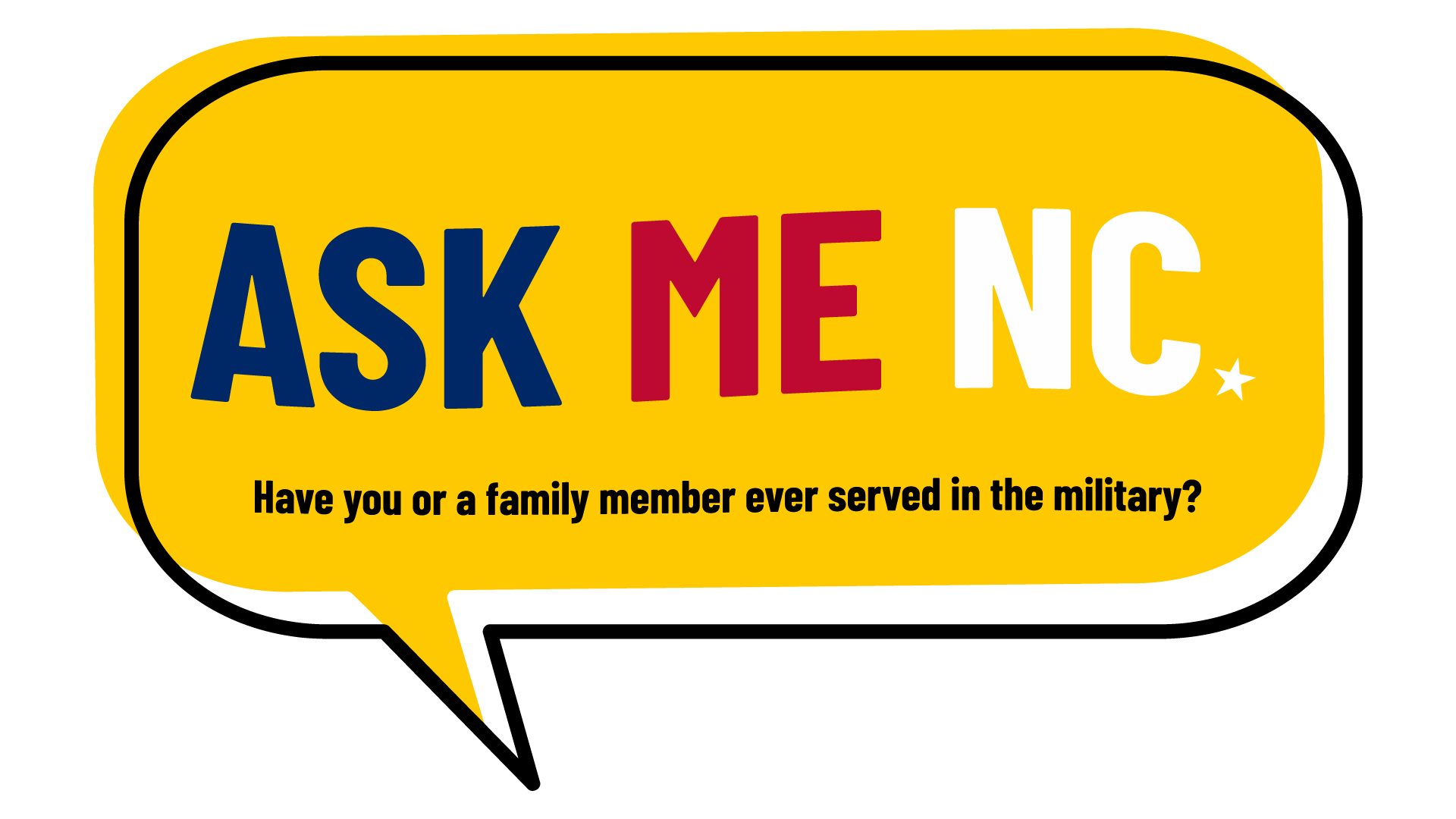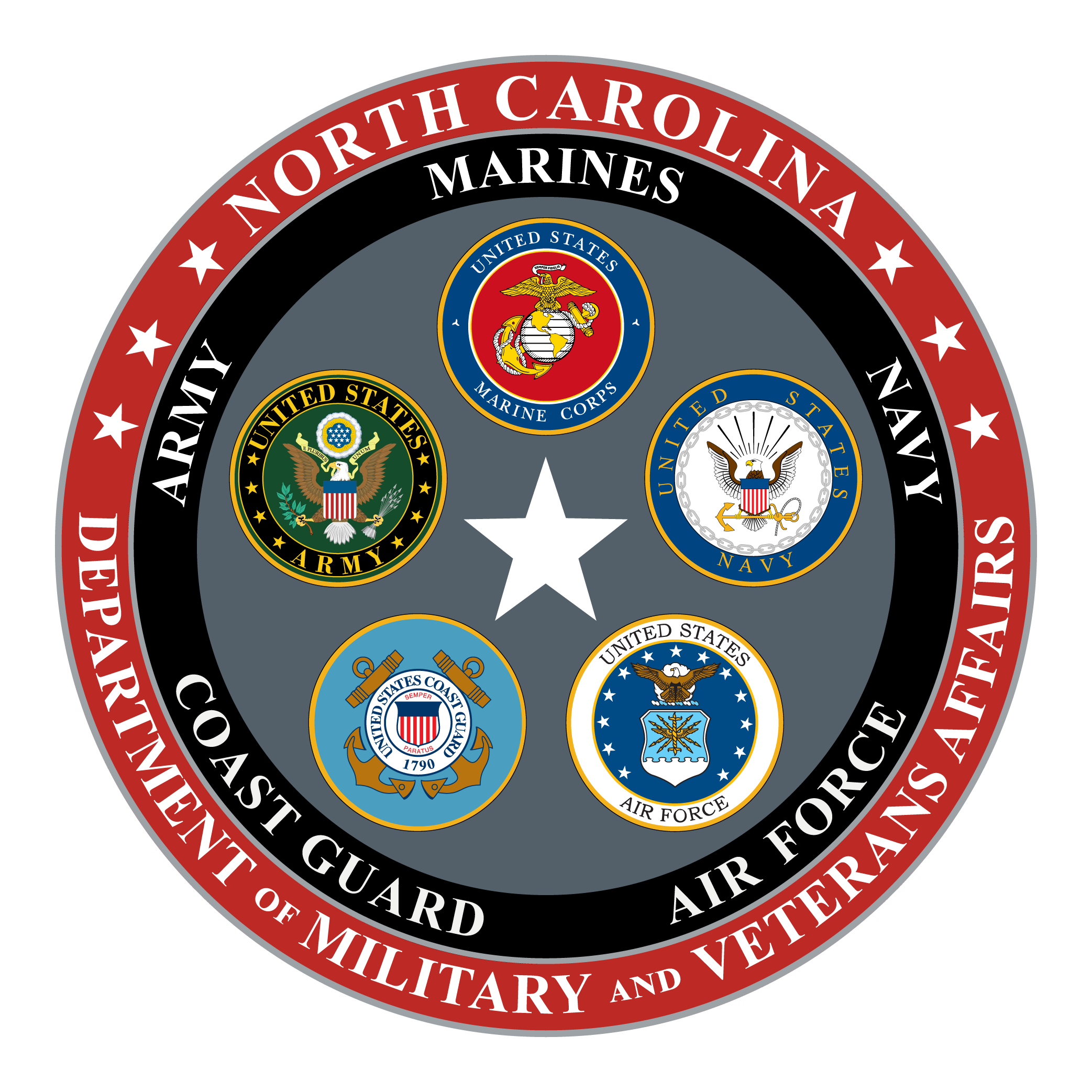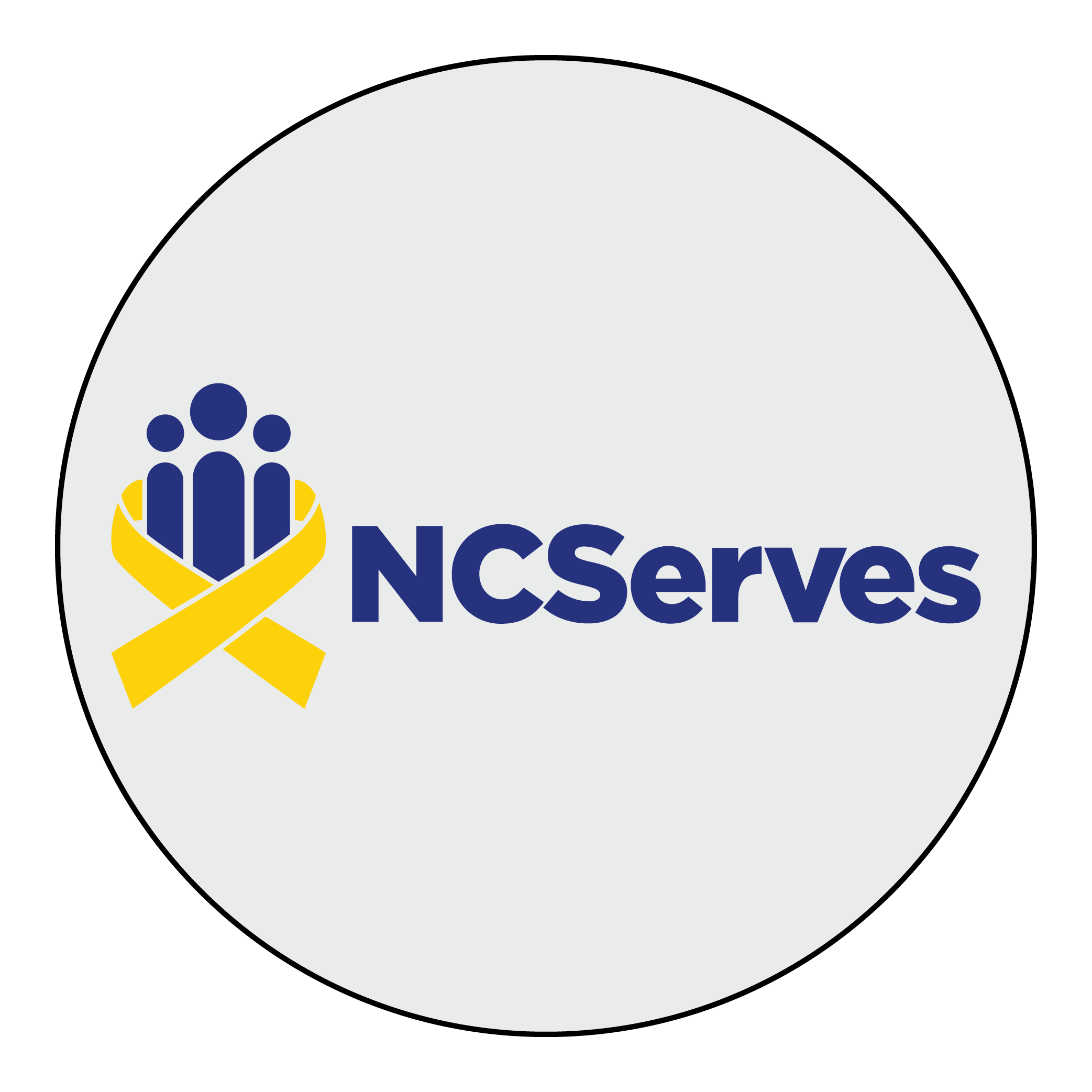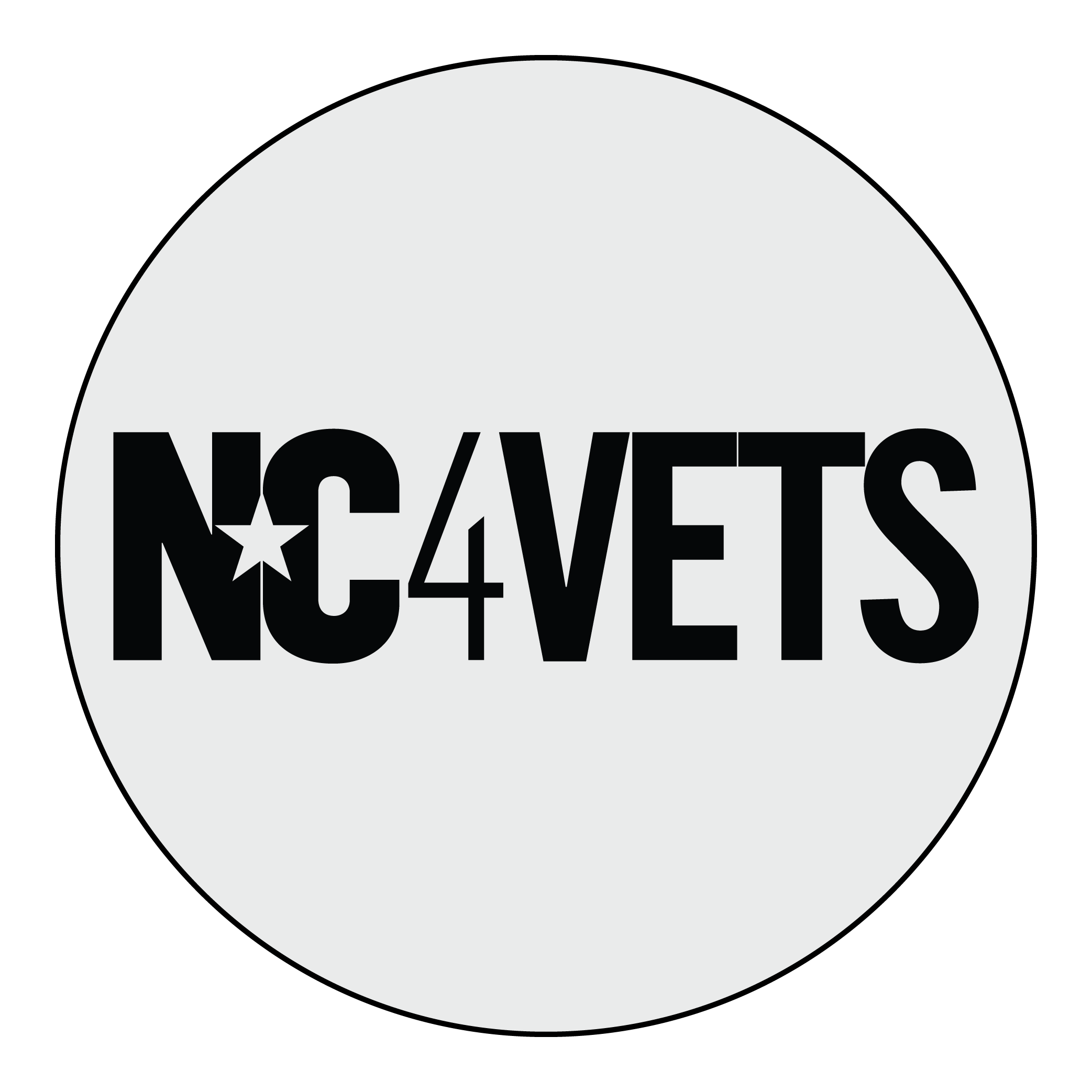
Just Ask.
Veterans, Service Members, and their Families regularly interact with healthcare providers, housing agencies, schools, and support services — yet they are not always asked about their military background. Many choose not to disclose this information, whether out of pride, privacy, or simply not realizing how important it is to their care or support.
Asking the simple question, “Have you or a family member ever served in the military?” helps professionals:
-
Connect individuals to specialized resources designed for the military and veteran community.
-
Better understand the context of physical, emotional, financial, or academic challenges.
-
Build trust and respect, showing care for a person’s full story.
And if you haven’t been asked, you can always take the lead — proudly say “Ask Me NC!” and share your service connection. Your experiences matter, and the more we know, the better we can serve.




Choosing Life – Teaching People How to Live
Did you know that Veterans in North Carolina are 2.5 times more likely to die by suicide than non-veterans?
Asking the question can help save a Veteran’s life.
When the Answer is YES
Medical Services
By asking if someone has served in the military, the doctor or healthcare provider can gain critical context that impacts diagnosis, treatment planning, and referrals. Asking further questions will also help to:
- Build rapport and demonstrate respect for the Veteran’s life experiences
- Identify service-related conditions such as PTSD, chronic pain, or toxic exposure
- Guide the Veteran or family member toward VA enrollment and military-specific medical resources
Resources:
Register For Care at the VA
Mental Health and Substance Use Disorders
By asking if someone has served, mental health professionals can better understand the role of military experience in shaping symptoms, risks, and recovery. Asking further questions will also help to:
- Identify trauma history, TBI, or substance use linked to deployment or transition
- Build therapeutic rapport through culturally competent care
- Refer individuals to VA behavioral health services or military-informed providers
Resources:
Substance Use Treatment For Veterans – Veterans Affairs
Integrated Behavioral Health System (IBHS)
Law Enforcement and First Responders
By asking if someone has served in the military, first responders can better assess behavior and tailor their approach during a crisis or encounter. Asking further questions will also help to:
- Avoid escalation by understanding triggers related to combat, trauma, or mental health
- Determine eligibility for diversion programs like Veterans Treatment Courts
- Connect individuals with crisis teams or VA Veterans Justice Outreach (VJO) services
Resources:
North Carolina Crisis Services – NCDHHS
Housing and Homelessness
By asking if someone has served in the military, housing professionals can uncover eligibility for targeted housing supports, benefits, and protections. Asking further questions will also help to:
- Connect Veterans to VA housing programs such as HUD-VASH or SSVF
- Identify barriers such as trauma or income disruption tied to military service
- Link clients with community partners who specialize in Veteran homelessness prevention
Resources:
Veterans Services of the Carolinas
Women’s Center
Homeless Veteran Program – VA Durham Health Care
Women's Services and Crisis Centers
By asking if she has served, service providers can uncover vital context often missed—especially for women Veterans who may not self-identify. Asking further questions will also help to:
- Recognize experiences with military sexual trauma (MST) or combat service
- Connect to gender-specific VA and non-VA programs, housing, and legal services
- Ensure crisis responses are informed, supportive, and trauma-sensitive
Resources:
Women Veteran Support Services
Combat Female Veterans Families United
Center for Women Veterans (CWV)
Education Services
By asking if the student or their family member has served, educators and administrators can unlock access to vital academic, financial, and career supports. Asking further questions will also help to:
- Connect individuals to GI Bill or MyCAA benefits for tuition and housing
- Identify needs related to transition stress, deployment, or frequent school moves
- Refer students to on-campus Veteran resource centers or state-funded supports
Resources:
Office of the University Registrar Veteran Affairs
NCNG Education Services Office
VA Education and Training Benefits
NC STRIVE
NCServes
Employment Services
By asking if someone has served, job counselors and workforce professionals can ensure Veterans and military spouses receive the priority access they are entitled to. Asking further questions will also help to:
- Match military experience to civilian job qualifications
- Connect to Veteran job fairs, resume translation tools, or training programs
- Refer to local NCWorks offices, DVOPs/LVERs, or programs like Work for Warriors NC
Resources:
NCWorks Online
Veterans Bridge Home
Work For Warriors NC (WFWNC)
Social and Spiritual Enrichment
By asking if someone has served, community and faith-based leaders can honor their background and help them reconnect with purpose, values, and identity. Asking further questions will also help to:
- Encourage involvement in Veteran service organizations or peer support groups
- Address spiritual wounds related to war, trauma, or transition
- Connect individuals to chaplaincy programs or enrichment opportunities
Resources:
Veterans Bridge Home
Chaplain Services at the VA Durham Health Care
Team Red, White & Blue [Find Your Chapter]
Benefits
By asking if someone has served in the military, service providers can identify eligibility for a wide range of federal, state, and local Veteran benefits. Many individuals — especially family members and women Veterans — may not realize they qualify for assistance. Asking further questions will also help to:
- Uncover access to VA healthcare, disability compensation, pension, and burial benefits
- Connect individuals to state programs, such as property tax relief, education grants, and NC4Vets resources
- Ensure they are registered with a County Veterans Services Officer (CVSO) or the appropriate benefits navigator for ongoing support
Resources:
Reserve Component Transition Assistance Advisor Program (RCTAA)
North Carolina Army National Guard Retirement Services Office (RSO)
Army Survivor Outreach Services (SOS)
ID Cards & Defense Enrollment Eligibility Reporting System (DEERS)
National Archives (Veterans’ Service Records)
NC4Vets
Need more resources or someone to talk to?

Veteran Service Officers

NC SERVES

